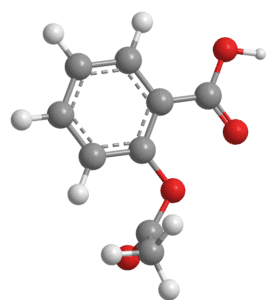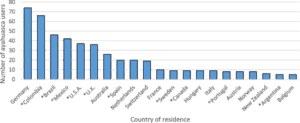History of DMT
At out DMT addiction treatment center we teach you all about DMT and its addictive qualities. DMT, clinically known as N,N-Dimethyltryptamine, is a chemical derivative of the tryptamine substance found in over fifty plant species. The origin of DMT use can be traced back to ancient, Amazonian tribes who incorporated variants of the drug in religious rituals over 1,000 years ago. The most common variant was in the form of Ayahuasca, a psychedelic tea made combining DMT and the Banisteriopsis Caapi vine. The DMT chemical was first isolated and synthesized in 1931 by German chemist Richard Helmuth Fredrick Manske, but it wasn’t until 1956 that its psychedelic properties were discovered in the Western World. Nicknamed the “spirit molecule”, DMT produces an intense, dissociative high often described as a near-death experience due to its extremely introspective and hallucinatory qualities. At the height of the counterculture revolution of the late 1960s, the Controlled Substances Act was passed, classifying DMT as a Schedule 1 drug. In recent years, the presence of DMT has resurfaced in the tourism industry. “Ayahuasca tourism” is a rapidly-growing trend, most common among young adults, in which individuals go on a spiritual retreat to the Amazon region and drink Ayahuasca tea under the supervision of shamans. Because of this trend, there has been a 53% increase in DMT use in the United States between 2006-2012. While there remains to be no evidence linking DMT with addiction or tolerance, long-term hallucinogenic use has been proven to cause lasting psychological damage.

The DMT High
DMT can be taken orally, snorted, or injected. It typically takes effect within minutes of consumption and the duration of the high depends on the method of consumption. DMT produces an intense high in which the user experiences:
Auditory and visual hallucinations
Euphoria
Feeling outside of one’s body
Intense fear
Severe vomiting (when consuming Ayahuasca tea)
Distorted perception of space and time
Side Effects of Prolonged DMT Use
Long-term DMT use has been proven to cause irreversible, psychological damage. Such side effects include:
HPPD- Persisting Perception Disorder
Psychosis
Chronic depression
Serotonin Syndrome
DMT Use in the United States
According to the National Institute on Drug Abuse, tourism to the Amazon for the purpose of using Ayahuasca has become increasingly popular among Americans and Europeans in recent years, and two long-term effects—persistent psychosis and HPPD—have been associated with its use. The graph below ranks the United States citizens as 5th in the world for Ayahuasca tourism.

DMT Addiction Treatment Center Solutions
DMT can cause irreversible psychological damage; therefore, it is extremely important to seek help immediately if you or a loved one is struggling with this drug. At Asheville Recovery Center, our DMT addiction treatment center specialists utilize a 12-step program and practice holistic rehabilitation.
Our DMT Addiction Treatment Center Services Include:
Partial Hospitalization Program – At Asheville Recovery Center we offer a partial hospitalization program for clients who need post-residential treatment as well as for clients who need primary treatment but are unable to enroll in inpatient programs. Our PHP track offers a variety of therapeutic services and benefits to individuals in early recovery from substance addiction. Our day program is full-time, offering all of the clinical hours provided in residential treatment (from 9 am to 5 pm) with the benefit of allowing clients to return home to a structured sober living environment at night. This gives individuals the opportunity to build a community of peers and practice life skills, such as cooking, cleaning, and self-care, while still participating in immersive and intensive clinical addiction and trauma treatment.
Outpatient Rehabilitation – During intensive outpatient treatment, clients live at home or in a sober living residence which can help keep them accountable for their recovery commitment. Our staff coordinates with local, reputable sober living homes to ensure that our clients are living in a safe place and that their needs are being met, even when they are not at clinical sessions. During this time, clients are also encouraged to become involved in local twelve-step fellowships, to find sponsors, and to begin working the steps of recovery through participation in these groups. IOP is a place where clients can process their experiences in twelve-step fellowships and support one another in those individual journeys.
Addiction is difficult to overcome alone. If you feel that you or a loved one is struggling with DMT abuse, our DMT addiction treatment center is on standby and ready to help. Call (828)383-0784 and speak with an addiction expert today.






